New Faculty 2023-2024
We welcome everyone to an exciting academic year. Below you will meet an extraordinary cohort of new faculty joining the Hajim School. Their accomplishments in research and teaching are already truly impressive, and they join a vibrant University of Rochester community of dedicated scholars and teachers who are transforming the lives of students and expanding their research fields.
See the past new faculty page for a list of new faculty from previous years.
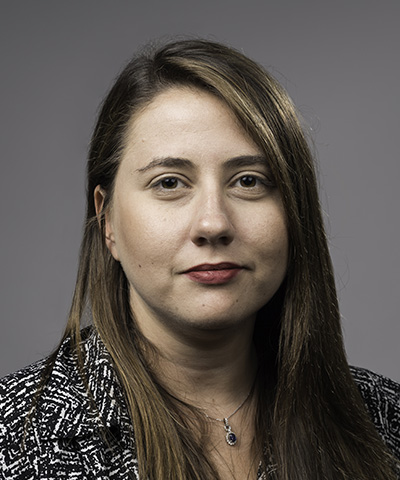
Yasemin Basdogan
Assistant Professor, Department of Chemical Engineering
Yasemin Basdogan joins the faculty after having served as a postdoctoral researcher at the California Institute of Technology.
Basdogan uses computational simulations to understand problems related to climate change and leverages artificial intelligence and machine-learning to design new materials for sustainability and energy applications.
Her research has been published in journals including Science Advances, The Journal of Chemical Theory and Computation, and Chemical Science. She was named one of MIT’s Rising Stars in Chemical Engineering in 2021, received the University of Pittsburgh’s James M. Coull Memorial Fellowship Award in 2019, and earned a Fulbright scholarship in 2015.
At Rochester, some of her goals include developing artificial membranes to separate CO2 from other gases, engineering solvents to capture and transfer CO2, and designing new catalysts that will convert CO2 into other chemicals.
- Undergraduate degree: BS, chemical and biological engineering, Koc University
- Graduate degree: PhD, chemical engineering, University of Pittsburgh
- Most recent appointment: Postdoctoral researcher, California Institute of Technology
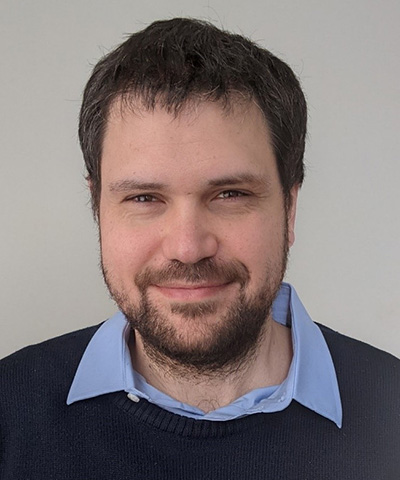
Michele Cotrufo
Assistant Professor, Institute of Optics
Michele Cotrufo joins the faculty after having served as a postdoctoral fellow at the University of Texas at Austin and at the City University of New York.
Cotrufo focuses on the theoretical and experimental investigation of metamaterials—artificially structured materials that manifest optical properties not available in bulk materials—for a broad range of applications in classical and quantum optics. In prior research, he demonstrated that optical metamaterials can be used to realize devices with vastly different functionalities across the electromagnetic spectrum, ranging from industrial applications in augmented reality displays to more advanced tasks such as analog computation and thermal light management.
Cotrufo is the coauthor of more than 30 peer-reviewed journal papers and co-inventor of two patents. In 2018, he was awarded a two-year Rubicon Fellowship from the Dutch Research Council.
In his new lab, Cotrufo will investigate the use of quantum metamaterials for the generation, manipulation, and detection of quantum states of light. This fall, he will teach the institute’s geometrical optics lab.
- Undergraduate degree: BS, physics, University of Bari
- Graduate degrees: MS, physics, University of Padova; PhD, physics, Eindhoven University of Technology
- Most recent appointment: Postdoctoral fellow, Advanced Science Research Center, City University of New York
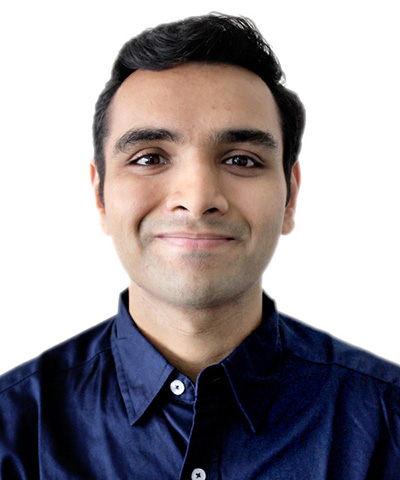
Siddharth Deshpande
Assistant Professor, Department of Chemical Engineering
Siddharth Deshpande joins the faculty after having served as a postdoctoral researcher at the University of Delaware.
Deshpande develops atomic models to understand reactive interfaces relevant to energy storage, conversion devices such as thermal and electrocatalytic systems, and next-generation battery chemistries. He has been the lead author of numerous papers in publications such as Nature Communications. During his final year at Purdue University, Deshpande earned the Faculty Lectureship Award, given to graduate students in their final year who have demonstrated the potential to become a future faculty member.
At Rochester, Deshpande will develop a research group that aims to improve the effectiveness of energy storage and conversion devices. In the spring, he will teach a class in statistical thermodynamics.
- Undergraduate degree: BE, chemical engineering, Birla Institute of Technology and Science
- Graduate degree: PhD, chemical engineering, Purdue University
- Most recent appointment: Postdoctoral researcher, University of Delaware
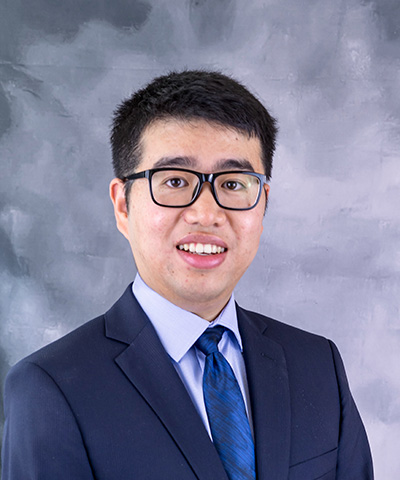
Gang Fan
Assistant Professor, Department of Chemical Engineering
Gang Fan joins the faculty after having served as a postdoctoral associate at MIT’s Department of Chemical Engineering.
Fan seeks to solve problems in sustainability through the integration of chemical engineering, chemistry, and bioengineering. His research focuses on bio-inspired catalysis. At the University of Texas at Austin, Fan harnessed the inherent activity of an electroactive microbe to control living radical polymerization. At MIT, he continued to develop novel catalytic platforms using the inherent activity of biomolecules to improve energy-relevant transformations.
Fan has been the lead author of papers published in Nature Chemistry, Proceedings of the National Academy of Sciences of the United States of America, and Journal of the American Chemical Society. He has received numerous recognitions for his work, including being named a finalist for Excellence in Graduate Polymer Research from the American Institute of Chemical Engineers, receiving first place in the MIT Chemical Engineering Postdoc Research Grant Competition, and earning the PMSE Future Faculty Scholar Prize from the American Chemical Society.
At Rochester, Fan will focus on interdisciplinary research at the intersection of bioengineering, chemical engineering, and polymer chemistry to solve challenges in human health and polymer sustainability. Next spring, Fan will teach an upper-level course on chemical reactor design.
- Undergraduate degree: BE, chemical engineering, Changzhou University
- Graduate degrees: ME, chemical engineering, Tianjin University; PhD, chemical engineering, University of Texas at Austin
- Most recent appointment: Postdoctoral associate, Massachusetts Institute of Technology
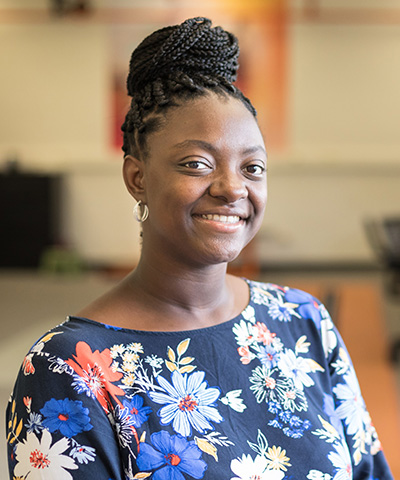
Cherice Hill
Assistant Professor, Department of Biomedical Engineering
Cherice Hill joins the faculty after having served as a postdoctoral fellow in the Clemson University–Medical University of South Carolina Joint Bioengineering Program.
Hill’s research concerns joint biomechanical function, particularly as it relates to pathologic risk, optimization of clinical outcomes, performance, and health disparities. Her doctoral research evaluated lower extremity joint (hip, knee, ankle) biomechanics in a racially diverse population to inform further investigation of racial disparities in musculoskeletal injury and disease risk. Her postdoctoral research implemented a multi-scale approach to characterize biomechanical function of the temporomandibular lateral capsule ligament complex to improve mechanistic understanding of temporomandibular joint dysfunction.
Hill received an NIH K99/R00 MOSAIC grant and a Howard Hughes Medical Institute Gilliam Fellowship to support her research and was an American Association of Dental, Oral, and Craniofacial Research Hatton Competition finalist. She has authored 15 journal articles.
At Rochester, Hill will investigate multi-scale biomechanics of the human temporomandibular and lower extremity joints with a particular focus on diverse populations. Her work will address musculoskeletal health disparities by evaluating mechanisms of pathology and improving equity in translational research.
- Undergraduate degree: BS, biomedical engineering, University of Virginia
- Graduate degree: PhD, biomedical engineering, Virginia Tech
- Most recent appointment: Postdoctoral fellow, Clemson University–Medical University of South Carolina Joint Bioengineering Program
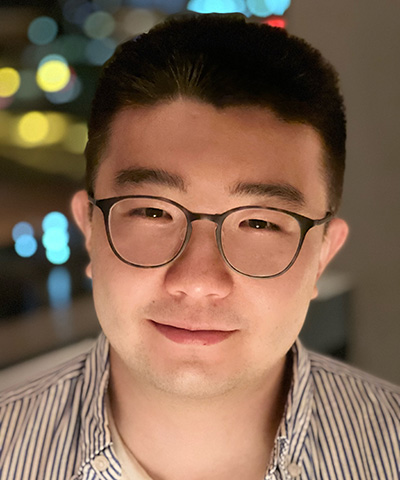
Jian Kang
Assistant professor, Department of Computer Science
Jian Kang joins the faculty after having earned a PhD in computer science at the University of Illinois at Urbana-Champaign.
Kang designs machine-learning algorithms that are both nondiscriminatory and reliable for use in high-stake applications such as financial and health care services. He is the author or coauthor of 13 conference and journal papers. He was named one of the 2022 Rising Stars in Data Science by the University of Chicago and earned the Mavis Future Faculty Fellowship at the University of Illinois at Urbana-Champaign. His work on graph-based recommender systems has been deployed at Facebook and Instagram to improve the quality of their recommendations.
At Rochester, he will design AI algorithms that can facilitate scientific discovery in multiple disciplines such as public health, materials science, and chemistry. He will teach a graduate course on artificial intelligence this fall and a graduate course on machine learning in spring 2024.
- Undergraduate degree: BE, electrical, electronic, and communications engineering technology, Beijing University of Posts and Telecommunications
- Graduate degrees: MS, computer science, University of Virginia; PhD, computer science, University of Illinois at Urbana-Champaign
- Most recent appointment: Doctoral student, University of Illinois at Urbana-Champaign
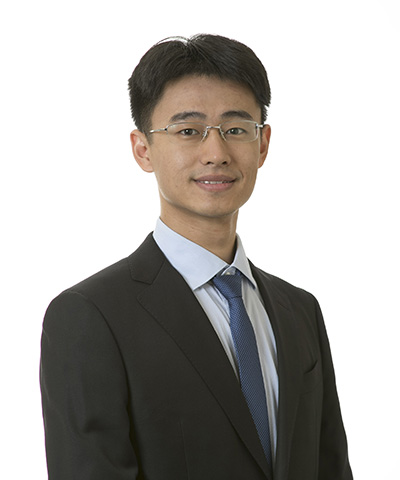
Jiaming Liang
Assistant Professor, Department of Computer Science
Jiaming Liang joins the faculty after having served as a postdoctoral associate in the Department of Computer Science at Yale University.
Liang’s primary research goal is to design, analyze, and implement fast algorithms for solving a general class of problems in data science. His interests include topics in optimization and sampling, such as convex and nonconvex optimization, nonsmooth optimization, stochastic optimization, and high-dimensional sampling algorithms.
His work has appeared in such journals as the Society for Industrial and Applied Mathematics Journal on Optimization and Mathematics of Operations Research, and at the Conference on Learning Theory and the American Control Conference. In a paper published in SIAM Journal on Optimization, Liang and his coauthor established for the first time the optimal complexity of the proximal bundle method, long believed to have superior practical performance without provably good theoretical guarantee.
At Rochester, Liang will explore topics at the intersection of optimization, statistics, information theory, and machine learning. He will teach a graduate course in the fall on optimization for machine learning, focusing on algorithms for large-scale optimization problems arising in machine learning and data science applications.
- Undergraduate degree: BS, ocean engineering and applied math, Shanghai Jiao Tong University
- Graduate degrees: MS, Computational Science and Engineering, Georgia Institute of Technology; PhD, operations research, Georgia Institute of Technology
- Most recent appointment: Postdoctoral associate, Yale University
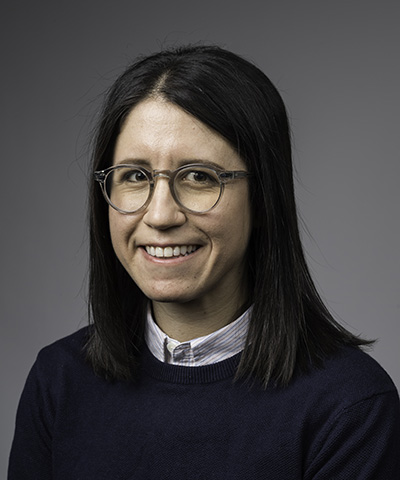
Allison Lopatkin
Assistant Professor, Department of Chemical Engineering
Allison Lopatkin joins the faculty after having served as an assistant professor at Barnard College. Previously, she also served as a postdoctoral scholar at MIT.
Lopatkin uses systems and synthetic biology approaches to engineer genetic communication in bacterial communities. Her lab integrates computational and experimental techniques, including mathematical modeling, bioinformatics, and molecular microbiology, to understand, predict, and optimize natural horizontal gene-transfer machinery for various purposes. The work is applicable to a broad range of clinical and environmental contexts, including inhibiting drug resistance and creating functional human or agricultural microbiome systems.
At Rochester, Lopatkin’s ongoing projects involve designing optimal horizontal gene-transfer recipient strains and engineering a toolbox of orthogonal horizontal gene-transfer components.
- Undergraduate degree: BS, applied mathematics, University of Rochester
- Graduate degree: PhD, biomedical/medical engineering, Duke University
- Most recent appointment: Assistant professor, Barnard College
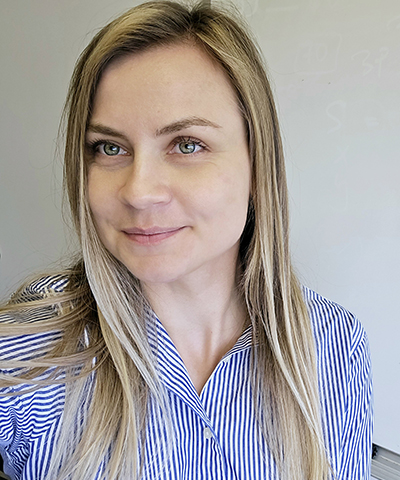
Monika Polak
Assistant Professor of Instruction, Department of Computer Science
Monika Polak joins the faculty after having served as a senior lecturer at Rochester Institute of Technology.
Polak researches cryptography, quantum-resistant cryptography, algebraic graph theory, extremal graph theory, pseudorandomness, and coding theory. She encourages her students to be inquisitive and often uses live coding in her classes to engage students and show them how each line relates to the larger solution. At Rochester Institute of Technology, she worked actively to broaden student participation in computing activities and helped develop and launch a post-quantum cryptography course.
This year at Rochester Polak will teach classes in cryptography, introduction to programming, advanced cryptography, and computer models and limitations.
- Undergraduate degree: BS, mathematics, Maria Curie-Skłodowska University
- Graduate degree: PhD, mathematics and computer science, Maria Curie-Skłodowska University
- Most recent appointment: Senior lecturer, Rochester Institute of Technology
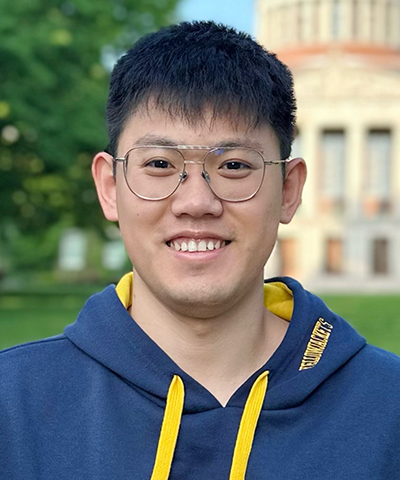
Yukang Yan
Assistant Professor, Department of Computer Science
Yukang Yan joins the faculty after having served as a postdoctoral fellow at Carnegie Mellon University.
Yan’s research focuses on understanding, predicting, and enhancing user behavior in mixed reality. His work follows three connected threads: capturing the user’s behavioral and perceptual patterns with computational methods; developing input techniques and adaptive user interfaces to facilitate human-computer two-way communication; and exploring unique behavioral enhancements enabled by mixed reality. Yan has published 24 papers and has received the Association for Computing Machinery’s Conference on Human Factors in Computing System’s (ACM CHI) 2020 Honorable Mention Award, ACM CHI’s 2023 Honorable Mention Award, and the IEEE Virtual Reality’s Best Paper Nominee Award. His thesis won Outstanding Doctoral Thesis at Tsinghua University.
At Rochester, his research group will pursue optimizing the interaction paradigm for mixed reality, from gaining insights into human behaviors to developing intuitive interaction techniques and building real-time systems to benefit real-life usage scenarios. In addition to research, he plans to teach a course on human-computer interaction in the spring semester.
- Undergraduate degree: BA, computer science, Tsinghua University
- Graduate degree: PhD, computer science, Tsinghua University
- Most recent appointment: Postdoctoral fellow, Carnegie Mellon University
